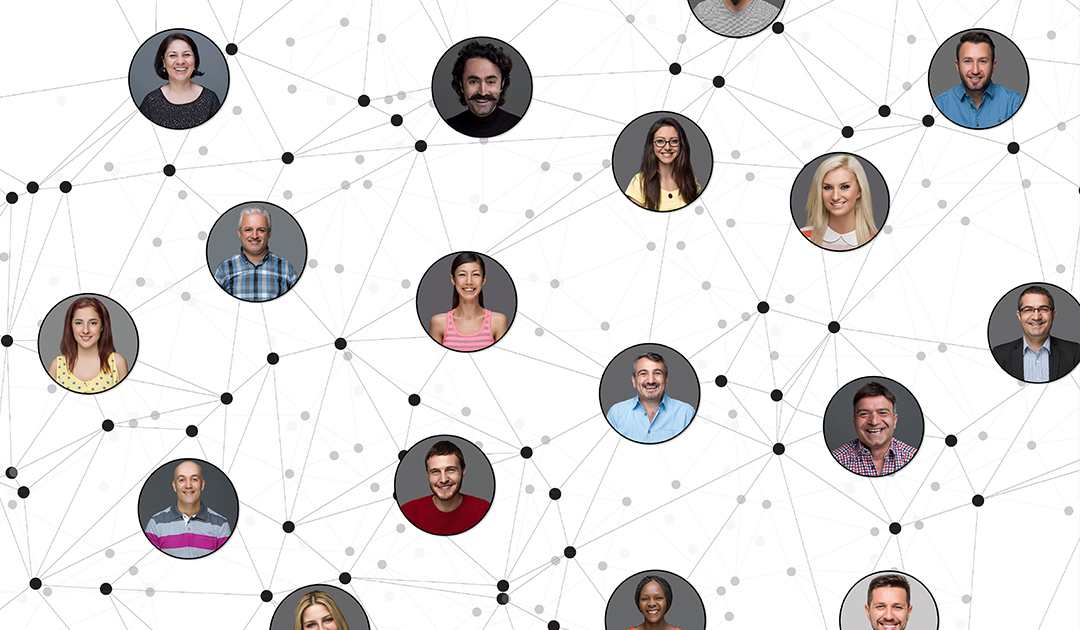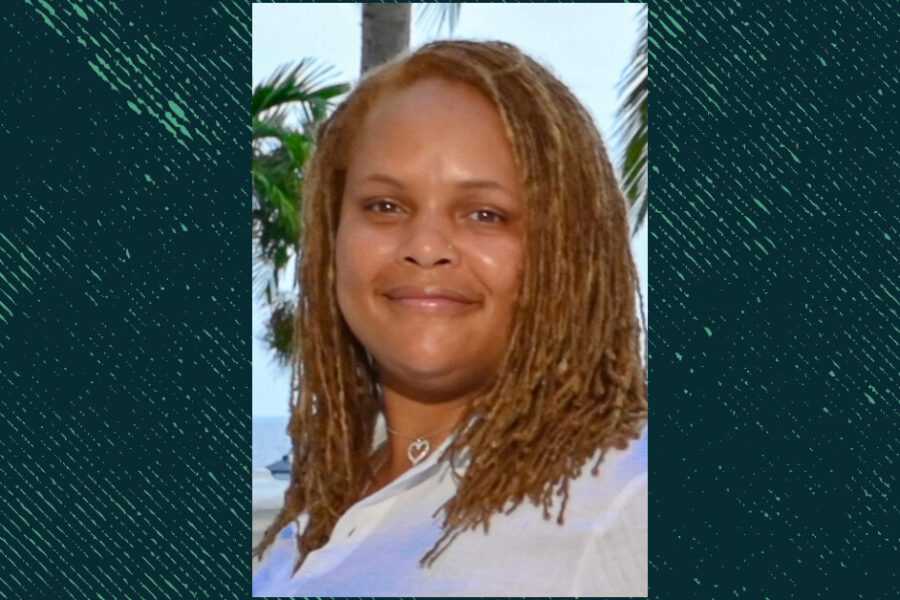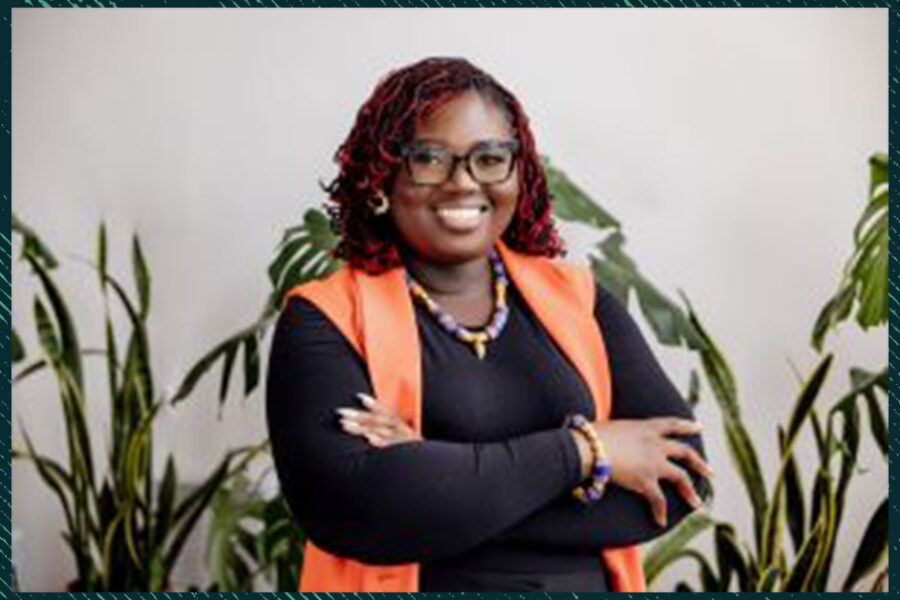While political conversations between people who hold different political stances have always been tricky, this problem seems only to be getting worse. In previous decades, the question of how to relate with differently-polarized family members, friends, colleagues, and community members was a topic for magazine articles around the holidays. Now, such encounters feel not just painful and unproductive but even damaging to relationships. As Harriet Schwartz, PhD, a Professor in Antioch University’s Graduate School of Leadership and Change, puts it, “Relationships are damaged and severed. I think so many of us who care about social justice are wrestling with—how can we navigate these profound cultural divides? How can we navigate a world with so much division and keep working for change?”
Schwartz believes Relational Cultural Theory offers a relevant approach for these fractured times. It may offer ways forward around charged issues like these and other potential sites of conflict—not just in our families but in our communities and broader society. Schwartz, along with many other students and faculty scholar-practitioners from across the University, are exploring ways that leaders across society can use Relational Cultural Theory (RCT) in practice. This has led the GSLC to deepen its collaboration with the leading RCT advocacy organization, the International Center for Growth in Connection, and also to create a new fund for RCT-focused dissertations.
Another step in these efforts came at the most recent summer residency of the GSLC, where two scholars from the International Center for Growth in Connection (ICGC) gave a cross-cohort skill-building session on RCT, neuroscience, and racism. The session, held on July 24, 2024, was led by Amy Banks, MD, and Maureen Walker, PhD, and it was facilitated by Antioch faculty member Harriet Schwartz, PhD. Titled “Waging Peace,” it was sponsored by the Fund for Democratic Initiatives, part of Antioch Works for Democracy, a multi-month campaign of education and action to build a more just and inclusive democracy.
The Power of Relational-Cultural Theory
Relational-Cultural Theory originated in psychology, but it has found broad applicability also in a range of fields including education, leadership, social change, and ecology. RCT emphasizes connection and centers on the importance of building and maintaining healthy, empathetic connections. Practitioners believe that healthy growth-fostering relationships are central to individual, community, and cultural well-being. RCT encourages mutual empathy, where individuals actively listen and understand each other’s experiences and emotions and bring their humanity to these interactions. This reduces the likelihood of “othering” and promotes a sense of shared humanity.
Schwartz acknowledges that at first glance, RCT can sound to some like a lightweight or feel-good theory. However, it is much deeper than that. RCT helps people “become more intentional in our relationships, and RCT talks about conflict as part of relationships and helps us think about how to deal with conflict.”
To understand RCT better, says Banks, the first thing is to position human development within a relational lens, “so that human health and wellbeing, or whatever lens you want to look through is entirely dependent on healthy relationships.” The key thing, she says, “is to take this hyper-competitive culture that we’re in and really turn that on its head, and to be able to say, ‘no, actually, that is completely wrong.’ It’s not about separation and individuation, but that human growth is through and toward healthy relationships.”
The concept of “power with” is central to RCT’s understanding of social dynamics. In “power over” relationships, the dominant group typically establishes norms, makes decisions, sets rules, and enforces compliance, often leading to oppression, disconnection, and disempowerment for those with less power. This dynamic makes collaboration, creativity, and mutual respect very difficult, as it prioritizes maintaining the power of the dominant party. In contrast, “power with” relationships and cultures emphasize collaboration, mutual respect, and shared decision-making. This form of power is rooted in the idea that strength and influence come from working together and valuing each person’s contributions.
In “power with” relationships, power is not seen as a limited resource to be collected, but as something that can be increased and deepened through cooperation and connection. While “power over” relationships can perpetuate inequality, conflict, and disconnection, on personal, educational, professional, and societal levels, “power with” relationships have the potential to promote inclusivity, understanding, and collective growth.
”In relationships where there is a clear power differential, for example between a teacher and a student or a manager and supervisee, the person with more power can still seek to reduce the hierarchy by, for example, being transparent about decisions,” Schwartz said. “At the same time, the person with more power must maintain role clarity and remain cognizant of their responsibilities in the relationship.”
Part of what Banks brings to conversations about RCT is a grounding in neuroscience. She explains that neuroscientists are especially focused on empathy, which they define more precisely as “resonance.” She explains, “It is being able to both read another human being and to keep your mirror neurons open enough so that you don’t switch into kind of an abstract way of knowing people, so you can feel and know them.”
Ultimately, this ability is key to productively being in relationship with someone else. “There’s this relational paradox where we all want to be in connection, but sometimes because we fear disconnection or we lack trust perhaps justifiably due to trauma, we actually keep ourselves out of relationship,” shares Schwartz. “Human beings strive for connection, we thirst for it, we hunger for it. And some have had experiences that make that incredibly difficult because of prior relational hurt and sometimes trauma.” That’s the space where the work is.
“Healthy relationship is both the point and the means,” says Banks. Once you center relationship at the core of all growth and development, “the world looks just dramatically different.” She says that this can radically transform how we relate to the world. “Now you are in an environment where everything is interconnected—not just people, but everything.”
A Growing Collaboration Between GSLC and ICGC
Schwartz thinks the connection between the International Center for Growth in Connection and Antioch’s Graduate School of Leadership and Change is “a natural fit, based on the history of our program as relationally-based and on the kind of research our students pursue,” said Schwartz, noting that approximately 10 percent of PhDLC dissertations have drawn on RCT or other relational theories. Antioch’s GSLC could become a hub for scholar-practitioners engaging in RCT-related research across the social sciences.
The partnership between the GSCL and the ICGC recently led to the establishment of the Jean Baker Miller Relational Cultural Theory (RCT) Research Fund. This groundbreaking initiative honors the legacy of Dr. Jean Baker Miller, the lead founder of Relational Cultural Theory, a paradigm-shifting framework that redefines human growth and development through the lens of relationships and connection. The fund provides a new award opportunity for PhDLC students.
This collaboration with the ICGC builds on roots that go back to the GSLC’s founding. “RCT has been fundamental in the leadership and change doctoral program since its inception,” says Schwartz. The founders of the program, including Laurien Alexandre and Elizabeth Holloway, drew on RCT to think about creating a relational PhD program that centered learning and connection rather than in isolation or competition. Today, as Schwartz explains, “Relationship as a value and as a building block is manifest in everything from the cohort model to the faculty structure to the strong commitment to active and personalized advising.”
A Cross-Cohort RCT Training
“We teach RCT and related topics in the program,” says Schwartz, but she explains that these are usually “only in sessions that are for single cohorts.” That was why last year Schwartz and PhDLC professor Beth Mabry, proposed the event that would become “Waging Peace: Relational Cultural Theory, Neuroscience, and the Hope for Change.” She and her colleagues had already been “thinking about a cross-cohort session that would, in particular, help students think about how to engage in difficult conversations more intentionally and more meaningfully.”
Once it was funded through the AW4D’s Fund for Democratic Initiatives, Schwartz began planning a cross-cohort session during the GSLC’s summer residency that would make room for connection, understanding, and genuine democratic engagement in a time of deep political, social, and political divides. She invited Maureen Walker, PhD, and Amy Banks, MD to deliver a program focusing on engaging in meaningful dialogue across differences.
Walker is an active anti-racism trainer who works with schools, businesses, and government agencies, and specializes in racial understanding and conflict. Banks, meanwhile, is considered by many to be the foremost expert in combining RCT with interpersonal neurobiology. She brought the neuroscience perspective. The session was facilitated by Schwartz. All three are prominent scholar-practitioners involved in the International Center for Growth in Connection (ICGC).
The session considered how we as human beings process information and relate to one another, through the foundations of both neuroscience and Relational-Cultural Theory. By the end, the session equipped students with strategies to help overcome behavior and language that can be dehumanizing and “othering”—exchanging these for democratic engagement through understanding and connection. Central to the discussion were the questions “How can we move beyond the siloed conversations that only seem to deepen divides?” and “How can we further develop our capacity to engage in meaningful dialogue across difference?”
For current student Chau Ly, the event was meaningful. “I enjoyed hearing about the neuroscience behind relationships, particularly how our brains are wired for connection,” says Ly. She especially appreciated the way the presenters balanced their different perspectives, modeling a powerful partnership in understanding and overcoming racism to build positive relationships across differences.
Jen Buell, another current student, says that the session encouraged students to engage in “disruptive empathy, power with, and authentic love.” And Amelia Garza, another student, says that she specifically appreciated learning more about the concept of “power-over relationships.” She says, “It’s vital to realize how people knowingly and unknowingly seek power over relationships grounded in our neurological makeup.” Garza says that through learning to see things this way “we can better recognize the changes needed for mitigating power-over tendencies that perpetuate disconnection, polarization, and discrimination.”
Reflecting after the election, Schwartz proposes, “RCT offers us a way forward. Relational bonds and power-with mindsets are essential for the survival of democracy.”





